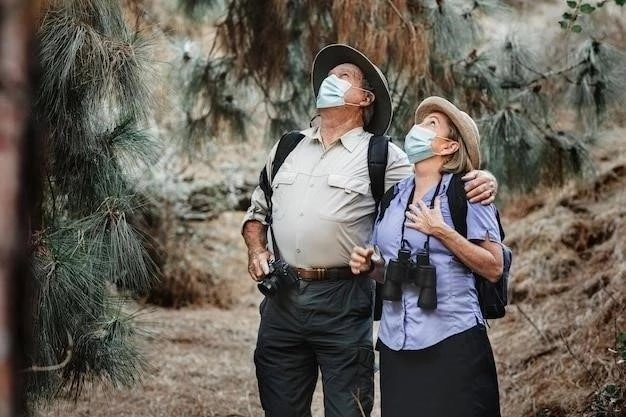Yemen Travel Guide 2024
Traveling to Yemen in 2024 requires careful consideration due to the ongoing security and safety concerns. This guide provides essential information for those considering travel to Yemen, focusing on crucial aspects such as health, safety, and necessary precautions.

Safety and Security
Yemen currently faces a complex security environment characterized by ongoing armed conflict, civil unrest, and a high threat of terrorism. The U.S. Department of State advises against all travel to Yemen, including the island of Socotra. The security situation remains volatile and unpredictable, with widespread violence and a high risk of kidnapping. Essential services, including law enforcement and emergency medical services, are severely limited or nonexistent in many areas.
Travelers who disregard this advisory face significant risks, including becoming victims of violence, detention, or kidnapping. The U.S. government’s ability to provide assistance to citizens in Yemen is extremely limited. Before considering travel to Yemen, it is crucial to understand the risks involved and acknowledge the limitations of consular assistance. Travelers should consult with security professionals and stay informed about the latest developments in the country’s security situation through reliable sources, such as government travel advisories.
Health and Medical Considerations
Yemen presents significant health risks to travelers due to a combination of factors, including limited healthcare infrastructure, ongoing conflict, and the presence of infectious diseases. Access to quality medical care is severely restricted, particularly outside of major cities. Travelers should consult with a travel medicine specialist well in advance of their trip to discuss necessary vaccinations, preventative medications (such as antimalarials), and health precautions.
It is crucial for travelers to be up-to-date on routine vaccinations, including measles, mumps, rubella (MMR), diphtheria, tetanus, pertussis (DTaP), polio, hepatitis A and B, and typhoid. Additional vaccines, such as rabies and cholera, may be recommended depending on the specific itinerary and planned activities. Travelers should take meticulous food and water safety precautions to minimize the risk of gastrointestinal illnesses. This includes consuming only bottled or thoroughly cooked food and beverages and avoiding ice made from tap water.
Insect-borne diseases, such as malaria and dengue fever, are prevalent in Yemen. Travelers should take measures to prevent insect bites, including using insect repellent, wearing long-sleeved clothing and pants, and sleeping under insecticide-treated mosquito nets. Carrying a well-stocked first-aid kit containing essential medications, antiseptics, and wound care supplies is crucial, as access to pharmacies may be limited. It is advisable to purchase comprehensive travel insurance that includes medical evacuation coverage in case of a serious illness or injury requiring medical attention unavailable in Yemen.
Visa and Entry Requirements
Obtaining a visa to enter Yemen is generally challenging due to the ongoing conflict and security situation. The Yemeni government has suspended tourist visa issuance, and visas for other purposes, such as business or journalism, are granted on a case-by-case basis and often require special permission from Yemeni authorities. Travelers are advised to contact the nearest Yemeni embassy or consulate in their home country well in advance of their intended travel dates to inquire about the latest visa regulations and requirements.
Even if a visa is granted, entry into Yemen may be further restricted due to security checkpoints, airport closures, or other unforeseen circumstances. It is crucial to stay informed about the latest travel advisories and security updates from both your home country and Yemen. Travelers should also note that carrying a passport valid for at least six months beyond the intended stay in Yemen is generally required for entry.
Given the complexities and uncertainties surrounding visa and entry requirements for Yemen, seeking assistance from a reputable travel agency specializing in travel to the region is highly recommended. These agencies can provide up-to-date information, assist with visa applications, and help navigate the logistical challenges of traveling to Yemen during this time.
Transportation
Transportation within Yemen is severely affected by the ongoing conflict and poses significant risks to travelers. Traveling by road is particularly dangerous due to the risk of armed clashes, checkpoints controlled by various armed groups, and poor road conditions. Public transportation options are limited and often unreliable.

Air travel within Yemen is also unreliable and subject to frequent cancellations or disruptions. The primary international airports in Sana’a and Aden have been significantly damaged during the conflict and may experience closures or limited operations. Travelers should exercise extreme caution when considering air travel within Yemen and seek up-to-date information on flight schedules and airport security.
Given the highly volatile security situation and the limited transportation options, independent travel within Yemen is strongly discouraged. Travelers who must travel to Yemen should do so only with the assistance of a reputable security or logistics provider. It is essential to have a detailed travel plan, including pre-arranged transportation and accommodation, and to maintain regular communication with contacts both inside and outside of Yemen.

Accommodation
Accommodation options in Yemen are significantly limited due to the ongoing conflict and the resulting impact on the tourism infrastructure. Many hotels and guesthouses have closed down or are operating at reduced capacity. Those that remain open may have limited amenities and may not meet international safety and hygiene standards.
Travelers planning to visit Yemen should expect limited choices for accommodation and should book well in advance, particularly if traveling to smaller towns or rural areas. It is crucial to verify the security situation in the specific location where accommodation is booked and to inquire about any safety precautions in place at the chosen hotel or guesthouse.
Travelers should be aware that electricity and water supply may be unreliable in many parts of Yemen, and internet and communication services may be limited or unavailable. It is advisable to pack accordingly, bringing essential toiletries, a flashlight, and a portable charger. Due to the security concerns, it is recommended to choose accommodations located in areas with a visible security presence.
Currency and Money
The official currency of Yemen is the Yemeni Rial (YER). However, due to the ongoing conflict and economic instability, the Yemeni Rial has experienced significant depreciation and fluctuations in value. U.S. dollars are generally accepted in major cities, but it is recommended to exchange currency at authorized banks or exchange bureaus for the best rates.

Credit card use is extremely limited in Yemen, and travelers should not rely on them as a primary means of payment. ATMs are also scarce and may not be operational, especially in conflict-affected areas. It is essential to carry sufficient cash in U.S. dollars or Yemeni Rials to cover all expenses during the trip, including accommodation, transportation, meals, and incidentals.

Travelers should exercise caution when exchanging money and avoid informal money changers on the streets. It is advisable to carry small denominations of Yemeni Rials for daily expenses and to keep larger sums of money secure in a money belt or hotel safe. Due to the risk of theft or loss, it is not recommended to carry large amounts of cash at any given time.
Cultural Etiquette and Customs
Yemen is a predominantly Muslim country with deeply rooted cultural and religious traditions. Visitors should be respectful of local customs and practices to ensure a safe and culturally sensitive experience. Modesty in dress is crucial, especially for women, who are advised to cover their hair and body with loose-fitting clothing. Men should avoid wearing shorts in public.

It is customary to greet people with a Salaam Alaykum (peace be upon you) and to shake hands with the right hand. Using the left hand for eating, gesturing, or handing objects is considered impolite. Photography should be approached with sensitivity, and it is always best to ask permission before taking pictures of people or religious sites.
Alcohol consumption is strictly prohibited in Yemen. Public displays of affection should be avoided, as they are considered inappropriate. It is also important to be mindful of prayer times, as businesses and services may pause during these periods. Demonstrating patience, understanding, and a willingness to learn about Yemeni culture will be greatly appreciated.

Things to See and Do
While Yemen boasts a rich historical and cultural heritage, the ongoing conflict severely limits the feasibility and safety of tourist activities. Many historical sites and landmarks have been damaged or are inaccessible due to the security situation. It is strongly advised to prioritize personal safety and adhere to all travel advisories and restrictions.
Should the security situation improve and travel become advisable, Yemen offers a unique blend of ancient architecture, stunning landscapes, and cultural experiences. The Old City of Sana’a, a UNESCO World Heritage site, is renowned for its towering mud-brick buildings and traditional souks. The ancient city of Shibam, with its distinctive skyscraper-like mud-brick houses, is another architectural marvel.
The island of Socotra, known for its unique biodiversity and otherworldly landscapes, holds potential for nature enthusiasts. However, accessing these sites remains highly challenging and potentially dangerous. Travelers should consult with security experts and local authorities for the latest safety updates and travel feasibility before considering any activities within Yemen.
Communication
Communication in Yemen can be challenging for travelers due to language barriers and limited telecommunications infrastructure. The official language is Arabic, and while English is spoken to some extent in major cities, it is not widely understood in rural areas. It is advisable to learn a few basic Arabic phrases or to travel with a guide or translator, especially when venturing outside of urban centers.
The ongoing conflict has significantly impacted Yemen’s telecommunications infrastructure, and internet and mobile phone services can be unreliable or unavailable, particularly in remote areas. Travelers should not rely solely on mobile phones for communication and should consider carrying a local SIM card or a satellite phone for emergencies.
Internet cafes are available in some cities, but connectivity may be slow and intermittent. It is crucial to keep family or friends informed of travel plans and to establish a regular communication schedule, whether through phone calls, text messages, or emails, whenever possible.
Emergency Contacts and Information
In the event of an emergency in Yemen, access to reliable assistance is severely limited. The U.S. Embassy in Sana’a suspended operations in 2015 and is unable to provide consular services to U.S. citizens. Travelers are advised to register their travel plans with the U.S. Department of State through the Smart Traveler Enrollment Program (STEP) to receive security updates and facilitate communication in case of an emergency.
It is crucial to have a comprehensive travel insurance policy that includes medical evacuation coverage. Travelers should keep a copy of their insurance information, passport, and other important documents readily accessible. Local emergency numbers in Yemen vary by region. In case of immediate danger, it may be necessary to contact local authorities directly.
Due to the extremely volatile security situation, self-reliance and proactive safety measures are paramount. It is strongly advised to engage with a professional security provider when traveling to Yemen to mitigate risks and ensure access to reliable emergency support.










